Lovers and Bikers in Alligator Alley
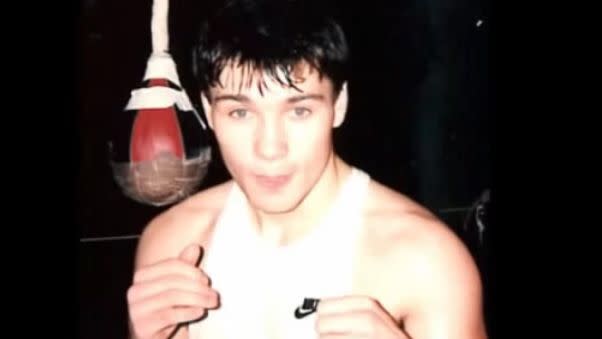
"Hearst Magazines and Yahoo may earn commission or revenue on some items through these links."
Bare Knuckle tells the incredible true story of Bobby Gunn, the 73-0 undefeated champion of bare-knuckle boxing. It’s a real-life Rocky tale about a father fighting against all odds for his daughter. After overcoming a brutal childhood spent fighting grown men in parking lots for cash at age 11 at the hands of his father, Gunn become a journeyman boxer whose career fizzled. Wanting to provide a better life for his family, he entered underground bare-knuckle matches for up to $50,000 cash staged by mobsters in New York City to put his seven-year-old daughter through school. This excerpt shares how Gunn began to grow his legend in the underground—culminating in an epic biker brawl along a section of Florida highway known as Alligator Alley.
Bobby Gunn promised his wife he was through with fighting. In the winter of 1993, shell-shocked by the death of his mother and the sudden collapse of his boxing career, Gunn had moved to Fort Lauderdale, Florida, and fallen in love. Once, while boxing in Las Vegas, he had met Rose Keith, a beautiful blond Scottish Traveler, and she had never left his mind. Glamorous and outgoing, Rose came from a wealthy real-estate family. Her father, Hugh, owned twenty mobile-home parks and was doing so well, they had settled down.
“All the Traveler kids were out visiting in Vegas,” Gunn recalls of his first meeting Rose. “I just remember she was so beautiful. But she was the elite. She didn’t go to T.J. Maxx. She went to Neiman Marcus. I didn’t think I’d have a shot.” Rose had grown up with everything Gunn had not—money, security, a fixed address, unconditional love, even box seats at the Dolphins games—and would seem an unlikely match. But Hugh, a 6’5” hard-nosed businessman, had once been a knuckler himself, and Gunn’s reputation as a fighter added weight. “In the Traveler community, sometimes that means more than money,” says Ruml. For Gunn, Rose was a lifeline. In Florida, with neither boxing nor Jackie to unite them, he and his father had grown further apart, with depression hanging like a fog in their tiny apartment on the northern fringe of town.
Occasionally, Gunn and Robert would venture out to the local gym, shadowboxing or working the pads, trying to regain some sense of normality. But not even training—the one communion they had always shared—could snap them out of their funk. “Dad was bad,” Gunn recalls. “And I just broke away from boxing.” Turning his back on the fight world, Gunn decided to chase a new prize: love. “I never even had a girlfriend before Rose,” he says. “To me, she was a princess.” As with so many aspects of Traveler culture, Gunn’s courtship of Rose was torn straight from medieval times—he may as well have arrived with a lute beneath her balcony. Travelers don’t date, and they certainly don’t have premarital sex. Instead, teenagers must socialize within group settings on weekends. So, one night at a Benihana, after just two months of quick conversations amid the crowd, Gunn took Rose aside to ask for her hand. “That Elvis song ‘Only Fools Rush In’ was playing,” Gunn recalls. “I just said, ‘I think you’re beautiful and want to marry you. I’ll be good to you.’ She said, ‘I know you will,’ shook my hand on it, and gave me a kiss.”
To confirm the engagement, Gunn next went to meet Rose’s parents, inviting them to breakfast at a Denny’s. “Her folks pull up in a big Mercedes 500, wearing Rolex watches,” Gunn recalls. “I get out of my work truck in an old leather jacket and says, ‘I’m Bobby Gunn.’ And her dad just says, ‘I know who you are.’” In the tight-knit Traveler world, Gunn knew that Rose’s parents would have heard about his years as a pro boxer and about his courtship, knew that they were weighing his family background and intentions. Nervous but resolved, he laid down his story over eggs and pancakes. “They’re looking at me and thinking, ‘This is a fighter and he don’t have nothing. Is he going to be a deadbeat? Is he going to torture my girl?’” Gunn recalls. “So I says, ‘I’ll be straight with you. I love your girl and I swear to God I’ll never lay a hand on her. My mom just died. I don’t have much. But I’ll make a go at it in life.’” Gunn sat back, silent, staring at Rose’s parents across the Formica tabletop. Finally, after a few moments, her father, Hugh, spoke. “He just says, ‘Gamest words I’ve ever heard any young man say,’” Gunn recalls. “And he shook my hand.” Gunn smiles. “They respected me.”
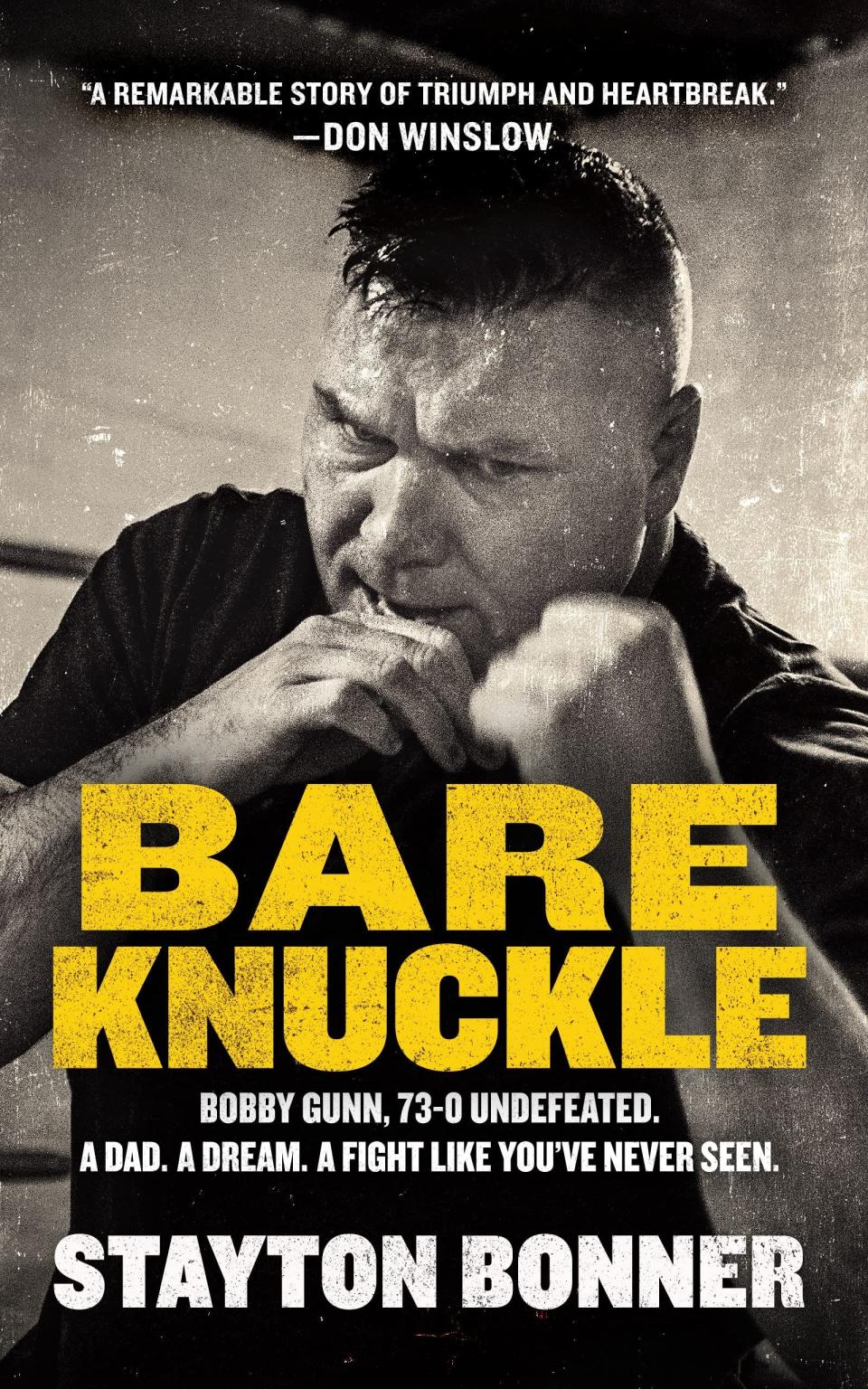
Bare Knuckle: Bobby Gunn, 73-0 Undefeated. A Dad. A Dream. A Fight Like You've Never Seen
amazon.com
$24.99
Finally, after six weeks of fervent hand-holding while chaperoned by family members, Gunn, then twenty-one, was about to marry Rose, nineteen. His boldness had paid off. Yet one final hurdle remained. In the final days before the ceremony, Rose approached Gunn, telling him she had one last condition: he had to give up the gloves. “She never wanted to see me fight,” Gunn says. “It bothered her.” Gunn’s prestige as a fighter had won him her family’s respect, but it would not win her. So, already burned out with boxing and deeply in love, he agreed to quit the fight game. “I thought she was too good for me,” he says. “I was tickled to death. I just said, ‘Let’s give it a go.’” For the first time in his life, Gunn felt at peace.
“I never had no brothers or sisters,” he says. “Compassion, for me, was only from my mom. So having someone like Rose opened a different part of my heart that I was hoping I could find. I could trust her. She was a Godsend.”
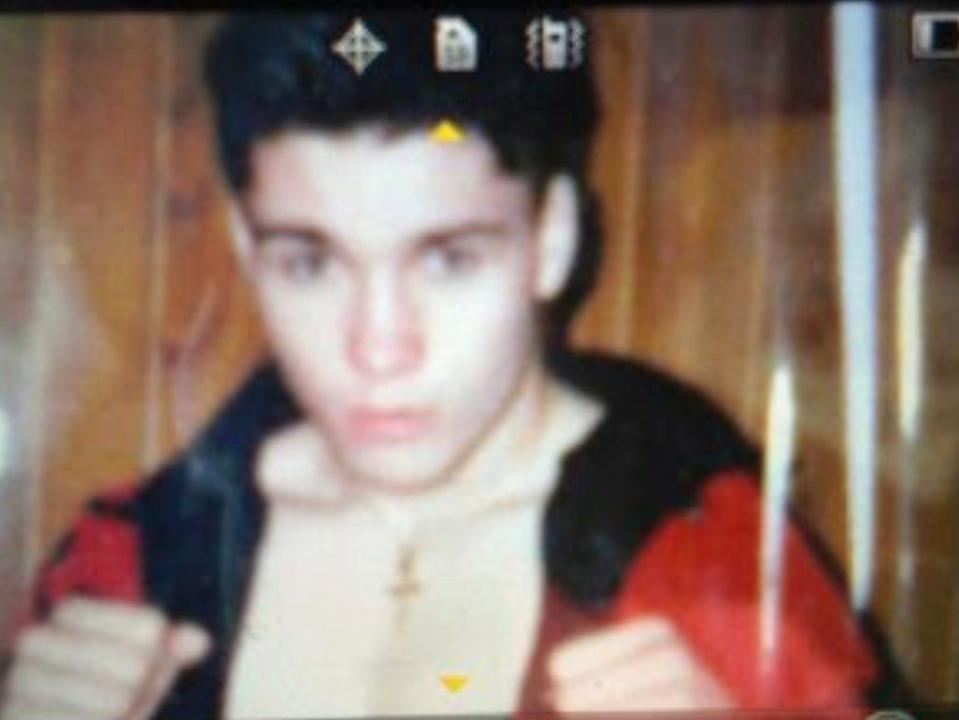
After a brief honeymoon at Disney World, he and Rose moved into an apartment at Sawgrass Mills Mall, settling into a suburban routine amid Florida’s sunshine, ocean spray, and orchids. Following Traveler custom, he went to work at his father’s trade, laying asphalt along vine-draped, alligator-ridden roads, while Rose tended the home and oversaw their finances. Coming home at night, he would often surprise her with a new dress bought at a local boutique. On weekends, he took Rose to Orlando or went hunting with his father-in-law in the Everglades, where he once shot a giant tusked boar only to have an even bigger alligator come along and eat his trophy. In the subtropics, a world apart from the cold and chaos of his childhood, Gunn finally started to move past the death of his mother and loss of his career, finding unexpected fulfillment in a stable home. “It changed his life,” says Ed Simpson, a Traveler and family friend. “He finally found love and a normal life.” The marriage also freed Gunn from his father. A month after the ceremony, Robert came to him with surprising news: he was returning home to Niagara Falls.
“After my wife died, I had to be alone for a while,” Robert recalls. “I couldn’t train Bobby, and everything had gone wrong.” For Gunn, the departure was unexpected. “When I got married, Dad told me ‘Good man’ and shook my hand,” he recalls. “Then I come back to see him and he said, ‘You’re a man now. You made your bed and you gotta lay in it.’ He even took my dog, Duran.”
Gunn felt mixed emotions about his father leaving. Robert was his only remaining close family. In the end, however, weary from years of prizefighting and from his mother’s illness—and also, perhaps, from his father’s drinking and sinking spells— Gunn decided that it was time to go out on his own. “Me and Rose just made a go of it,” he says. “Movies on Fridays, no work on Saturdays, and church on Sundays. Life was fun.” Yet something still gnawed at him. He came from a line of fighters, had brawled his entire life, and couldn’t help missing the ring. Also, he felt an obligation to make more money, to give Rose the kind of life she’d given up—even if it meant breaking their wedding-night promise. “My wife kept the fire under my ass,” he says. “I couldn’t just be a normal guy, because she was used to having high things.” So one day in 1994, when a Traveler asked whether he was interested in making some money in an underground bareknuckle fight, Gunn didn’t hesitate—not even when told he’d have to take on two guys in a row. “I said, ‘We’ll have a little bit of fun,’” he recalls.
The next night, after telling Rose he was going to the gym, Gunn drove to a run-down warehouse in South Beach, Miami, to square off against the two local fighters. With none of its modern revitalized gleam, South Beach in the early 1990s was a wasteland, a saltwater melting pot of drifters and immigrant Cubans eking out a living amid seedy hotels, boarded-up warehouses, and dilapidated Art Deco buildings. In the darkened warehouse, with the smell of sea and sweat in the night air, Gunn faced off against the men in consecutive bouts in a small ring in front of a large crowd of Cubans, other Latinos, and bikers. “We fought right off the ocean,” Gunn says. “Broken windows and glass was everywhere.” Right away, his years sparring the world’s top boxing champions became apparent. “They were dumplings,” he says of his opponents. “Out cold. Bang-bang.” He walked away with $1,500 cash.
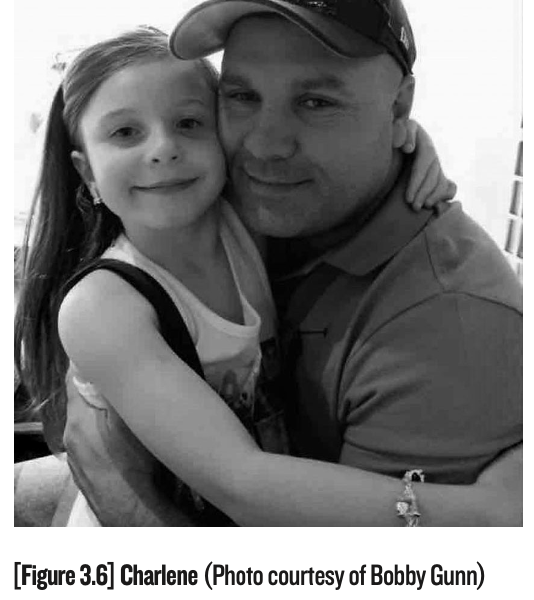
Gunn didn’t realize it at the time, but he had just stepped into what would become his true calling, a world he had first glimpsed a few months earlier at the biker fight in Pittsburgh as his mother lay dying—a world he would now enter full-time: the underground. “That’s the first time I really seen the circuit,” he says, “but it was here long before I was born.”
A patchwork of regional promoters and fighters as varied as the states themselves, the underground is a dark mirror of America. Whether it’s with gangbangers in Los Angeles, ranchers in Texas, Native Americans in Arizona, or good ol’ boys in Mississippi, fights can differ wildly in feel and custom and crowd. Yet one fact remains constant. The more populous East Coast has the most bouts—and its mecca is New York, where the top fighters contend for more money more often than anywhere else. “All the best fighters go to New York,” Gunn says. “Manhattan, Queens, Brooklyn, the Bronx—the underground circuit brings them all there.” Gunn had stumbled onto the other end of the East Coast bare-knuckle spectrum, Gotham’s raw, steamy shadow world. In the underworld, Florida is a sort of proving ground, a major feeder system where fighters come up brawling year-round in backyard bouts, making a reputation that will take them across the country. “South Florida is kinda like the old days in New York,” says Guy Pagan, fifty-eight, a boxing promoter and former army ranger who attends underground fights in Miami. “You got a lot of immigrants. But instead of the Irish, it’s Mexicans, Puerto Ricans, and Dominicans. Every now and then, you’ll get a guy flies in from somewhere that wants to test the waters. Like some tough guy that just ran over everybody in Mississippi. Big white dude who gets out the car and you’re like ‘Holy shiiittt, look at this dude!’ And he wants to scrap. And some of these guys are like white supremacists, thugs, and they put it out there in black and white: ‘Let’s go down there and fuck with these niggers.’”
In Florida’s underground scene, no one oversees more bare-knuckle fights than Dhafir Harris, a former corrections officer known as Dada 5000. Harris, thirty-nine, has long staged bare-knuckle bouts in his grandmother’s backyard in south Miami, transforming local gang leaders into paid brawlers. “People get robbed and killed here every day,” Harris says. “These guys are amateur boxers, football players, brawlers, and wannabes, all just fighting for a way out.” Florida’s most famous bare-knuckle export is Kevin Ferguson, better known as Kimbo Slice. A 6’2”,230-pound Bahamian-born fighter raised in South Miami, Slice briefly played linebacker on the Miami Dolphins practice squad before becoming homeless, living in his car, and eventually gaining fame for his bare-knuckle bouts on YouTube. These bloody brawls include a thirteen-minute fight against a Boston cop, which ultimately earned him a contract with the Ultimate Fighting Championship (UFC). In 2016, at age forty-two, Slice died of heart failure. Yet in his final months, the aging street champ had been planning to return to his roots in a bare-knuckle match against Gunn, back on his home turf. “All fighters love Florida,” says Harris. “But we didn’t invent this—it’s been around since the gladiator days.”
In 1994, soon after his double knockout in Miami, Gunn began making his own name in the Sunshine State. By day, he would lay asphalt and paint buildings. By night, he would scrounge for local fights, usually taking on a bout every few months. A melting pot of Cubans, Blacks, Puerto Ricans, and whites, south Florida was awash in international drug money, and the traffickers and dealers backed dogfights, cockfights, and, when possible, bare-knucklers. Gunn fought in backyards, abandoned swimming pools, and warehouses. He fought in bars and nightclubs and private homes. He fought alone and on cards with other fighters, in bouts held midday and at night. All the while, he kept his growing reputation in the underworld a secret from Rose, coming home with gifts and dresses while telling her he was sparring in gyms to keep in shape. “I’d come back with a little black eye and she’d ask, ‘What happened?’” he says.
“‘Tough workout.’”
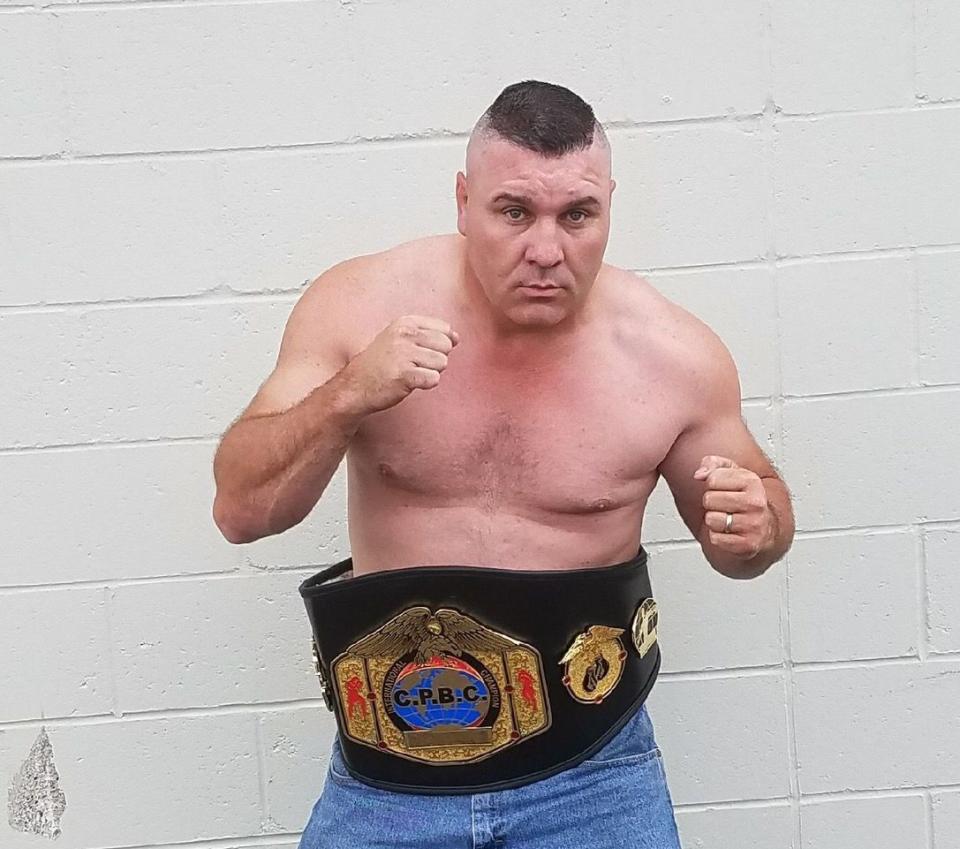
Of all Gunn’s early fights in the underground, none would compare with one of his first major money matches, a bout against a biker, in a parking lot behind a bar off I-75 in west Fort Lauderdale—a section of highway known as Alligator Alley. The fight was held in the afternoon. About seventy-five people crowded the lot, the air thick with the smell of sweat and warm beer. “I’d been painting roofs and was wearing my painter’s shorts,” Gunn says. “The back of the place was like a wrecker’s yard of cars and trucks.”
As usual, Gunn arrived with no idea of his opponent’s identity. All he knew was the sum of the prize money—$10,000. After being contacted by his opponent’s backers, he had paid his initial security deposit of $2,000, the 20 percent “kick-in” money, to a third party and now walked in with the rest in a bag, flanked by two Travelers. Entering the lot, he saw his opponent—a muscle-bound 6’2”, 225-pound biker backed by twenty-five of his friends, a roving militia of tattoos and leather vests. “We were like, ‘Oh, shit, where’s the exit?’” recalls Ed Simpson, one of the Travelers who was with Gunn that day. “It must’ve been a hundred degrees, the sweat running off you. And I was terrified: ‘Man, if Bobby puts this guy to the ground, are we getting out of here alive? Or are these guys going to kill us?’ Because there was a lot of money on the line. But it never bothered Bobby. He was like, ‘All right, bring it on.’” The biker came out swinging, the crowd cheering. “They thought they had it in the bag,” Simpson says. “We’re talking about a big dude, brother—a lot bigger than Bobby.”
To the crowd’s surprise, Gunn sidestepped the biker’s shots, each one a potential knockout blow, while waiting, watching, getting a feel for his opponent. The two men traded a couple more hits, Gunn’s punches seemingly having no effect, and then came the shot that put the crowd into a frenzy. The biker punched Gunn with three jabs in a row, nearly toppling him. “They were really good shots,” Simpson says. “Kinda shook Bobby a little bit.” Gunn embraced the biker, the two men hanging on to each other for fifteen seconds, catching their breath, and then they separated. Now looking for the kill, the biker came in for another possible knockout punch—and made his fatal mistake. Gunn sidestepped his hook and hit him with a quick combination: a left to the body—stunning his opponent, making him drop his arms—and then a right to the temple. The biker went down. “It went from yelling and cheering to dead silence,” Simpson says. “Weirdest thing you ever seen in your life.” Without hesitating, Gunn grabbed the money and left. “Stick around too long,” he says, “and they’ll get buyer’s remorse.”
For a couple of years following his victory in Alligator Alley, Gunn continued to take on fights throughout Florida, with no one detecting his background. “At first, I could throw my hat in the mix and get in fights anywhere,” he says. “They didn’t know who I was, so I could slip in like a pool shark and take you to school.” He shrugs. “It was nice for me. Young guy, married, come home with ten thousand in my pocket. It made my marriage a lot nicer. And Rose was thinking I was out working.” Gunn’s years as a ghost were numbered, however. “I had started making waves in the bare-knuckle world,” he says. “And then it become challenge fights—people calling me out because of my name.”
Adapted from Bare Knuckle: Bobby Gunn, 73–0 Undefeated. A Dad. A Dream. A Fight like You’ve Never Seen. by Stayton Bonner Used with the permission of the publisher, Blackstone Publishing. Copyright ©2024 by Stayton Bonner.
You Might Also Like

